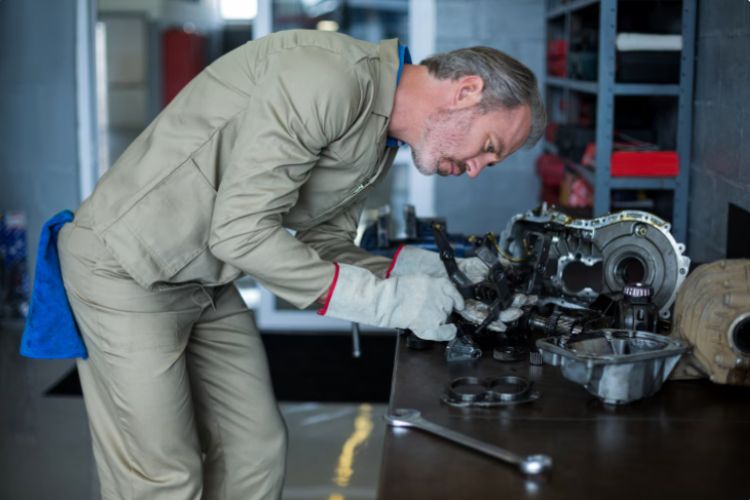Diesel engines power much of today’s transportation and industrial machinery, but their exhaust systems face relentless heat, vibration, and pressure. Without proper mitigation, these stresses lead to cracks, leaks, and downtime. That’s why a reliable Diesel exhaust expansion joints manufacturer is critical, providing flexible solutions to protect systems and ensure long-term performance.
Common Challenges in Diesel Exhaust Systems
Diesel exhaust systems operate under extreme conditions, far beyond what typical piping experiences. From fluctuating temperatures to constant vibration, these challenges can compromise performance and safety. Understanding these issues is the first step in designing a resilient system.
1. Thermal Expansion and Contraction
Diesel engines generate immense heat. As exhaust pipes heat up and cool down repeatedly, they expand and contract. This cycle stresses metal joints, leading to cracks and leaks. A study by the National Institute of Standards and Technology emphasizes that thermal fatigue is one of the leading causes of piping failures in industrial systems.
2. Vibration and Mechanical Stress
Engines vibrate constantly. Over time, these vibrations loosen fasteners, weaken welds, and fatigue materials. Without intervention, the exhaust system may fail prematurely, causing costly repairs and downtime.
3. Corrosion and Material Degradation
Exhaust gases contain moisture, soot, and sulfur compounds. These elements corrode metal surfaces, reducing the lifespan of the system. High-quality materials and protective coatings can help, but flexible joints also play a key role in mitigating stress that accelerates corrosion.
4. Back Pressure Issues
Improperly managed exhaust flow can increase back pressure, which decreases engine efficiency and fuel economy. Expansion joints help maintain consistent pressure by absorbing movement without disrupting flow.
How Expansion Joints Solve These Problems?
Expansion joints, or bellows, are specially designed to absorb movement, vibration, and thermal stress. They act as buffers, protecting exhaust systems from the harsh conditions inherent to diesel engines.
Key Benefits of Expansion Joints:
- Thermal Flexibility: Absorbs expansion and contraction of piping under high temperatures.
- Vibration Dampening: Isolates engine vibrations, preventing damage to welds and bolts.
- Misalignment Compensation: Adjusts for slight shifts or misalignments in the piping system.
- Enhanced System Longevity: Reduces fatigue, leaks, and maintenance costs over time.
In India, a reputed exhaust expansion joints manufacturer India provides tailored solutions, using high-grade stainless steel and multi-ply designs to handle extreme conditions while maintaining optimal exhaust flow.
Material and Design Considerations
Modern expansion joints are more than just flexible pipes. Engineers focus on:
- Multi-ply construction: Multiple layers improve fatigue resistance and flexibility.
- Internal liners: Protect against gas erosion and turbulence.
- Reinforced end connections: Minimize stress concentration and ensure secure attachment.
Proper material choice, like stainless steel or Inconel, ensures corrosion resistance and durability under high-temperature conditions.
The Role of Experienced Manufacturers
Not every expansion joint delivers consistent performance. Working with a trusted Diesel exhaust expansion joints manufacturer ensures rigorous testing for pressure, fatigue, and thermal cycles. Custom solutions can be designed to meet unique industrial requirements, from marine engines to power plants.
Frequently Asked Questions (FAQ)
1. How do expansion joints help prevent exhaust leaks?
They absorb thermal and mechanical stresses, reducing cracks and separation at pipe joints.
2. What materials are commonly used for diesel exhaust expansion joints?
High-grade stainless steel, Inconel, and other corrosion-resistant alloys are preferred for durability and heat tolerance.
3. Can expansion joints handle engine vibrations effectively?
Yes. Properly designed joints isolate and dampen vibrations, protecting piping and connections from fatigue.
4. How often should exhaust expansion joints be inspected?
Routine inspection every 6–12 months is recommended to check for cracks, leaks, or material fatigue.
Final Thoughts
Diesel exhaust systems operate under extreme conditions, but well-designed expansion joints provide flexibility, durability, and longevity. Investing in high-quality solutions from a reputable manufacturer ensures reliable performance, reduced maintenance costs, and protection against system failures. Flexible design isn’t just convenient—it’s essential for industrial efficiency.



